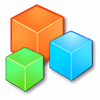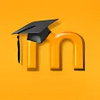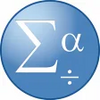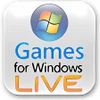For users just getting started with programming, this free Windows download is ideal for learning
For users just getting started with programming, this free Windows download is ideal for learning
Vote: (40 votes)
Program license: Free
Developer: Microsoft
Version: 1.2
Works under: Windows
Vote:
Program license
(40 votes)
Free
Developer
Version
Microsoft
1.2
Works under:
Windows
Pros
- Great for teaching new coders to write programs
- Comes with useful libraries
- Supports most mathematical operations
Cons
- Types variables weakly
- Only supports 14 individual keywords
Microsoft Small Basic is a dynamic programming language and an integrated IDE that's designed to make computer programming accessible to beginners. That's made it a perennial favorite in classrooms, though it has many uses outside of the education market. If you're teaching yourself to code from scratch, then you might want to take a look at Small Basic.
The underlying programming language is based on a small subset of the original BASIC system developed by Thomas E. Kurtz and John G. Kemeny at Darthmouth College. While it follows the original implementation quite well, many of the more sophisticated aspects of the language were stripped out by Microsoft's engineers. That makes this a far more streamlined product, which is also far more intuitive for new coders as a result.
In Small Basic, a coder could write a simple "Hello World" program in a single line as a result. In some ways, the syntax resembles that of Java or Ruby, which makes this a good training tool for those who plan on working with high-level programming languages in the future.
The app is Turing complete and supports subroutines as well as conditional branching and loop structures. You'll never have to rely on a GOTO command to get any work done, which helps to ensure that Small Basic doesn't encourage the formation of poor coding practices early on.
While Small Basic is weakly typed, it does support a number of basic data structures. You can create integers and strings fairly easily. Instead of handling floating point arithmetic the way that most languages would, Small Basic actually includes a decimal data type that should prove to be more intuitive to those who have a basic grasp of mathematics but no background in computer science.
Standard library packages are included with the IDE, and these offer a number of features. The most mundane of these are typical mathematical tools as well as those that parse user I/O and handle strings. A few more exotic classes are also included, which helps to set Small Basic apart from most competing languages.
For instance, you could use a class to retrieve photos from Flickr automatically. There are several that work with Microsoft's Kinect sensors, so you could theoretically hook this app up to a game console if you wanted to teach someone the basics of programming for IoT devices.
A Turtle graphics class also comes bundled with the software, so educators can teach students the rudiments of how computers draw pictures on a display screen. While these concepts might seem rather simple to those who've been coding for a long time, it's vital that computer science students have a strong grasp of them before they start working with more complex architectures.
In spite of all this simplification, the bundled IDE offers everything you'd want from a commercial grade application. It features syntax highlighting and even points out errors, which can help when debugging larger applications that make use of Small Basic's more exotic APIs.
Pros
- Great for teaching new coders to write programs
- Comes with useful libraries
- Supports most mathematical operations
Cons
- Types variables weakly
- Only supports 14 individual keywords




